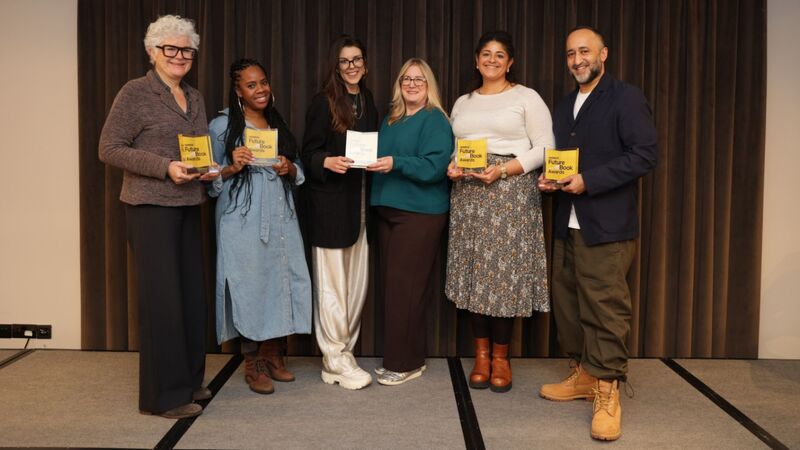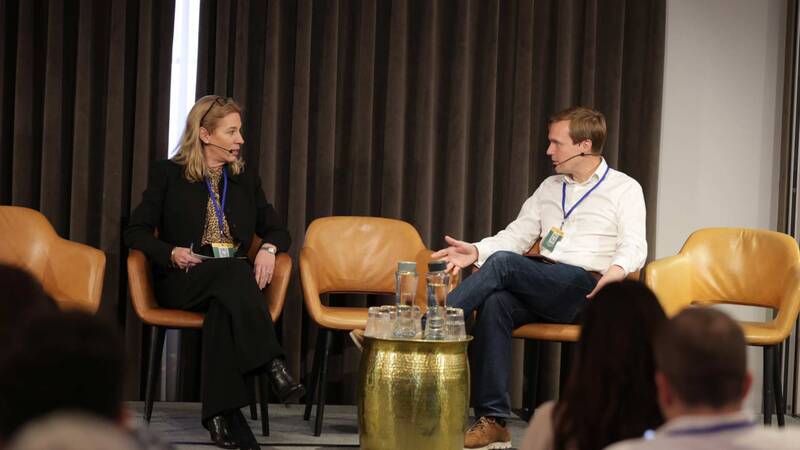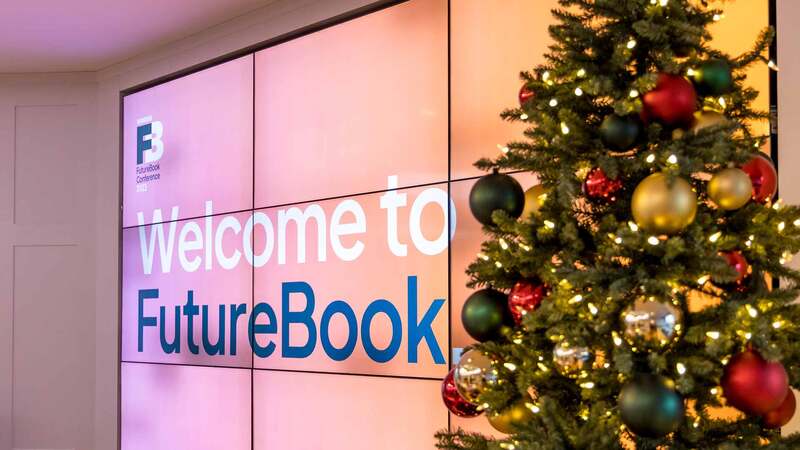You are viewing your 1 free article this month. Login to read more articles.
A room with a view
Last week The Bookseller held its first face-to-face event for 18 months: the FutureBook Conference took place on Friday 19th November, with about 250 delegates, speakers, sponsors, colleagues and volunteers at the event space at 155 Bishopsgate joining the more than 600 individuals who watched online.
Last week The Bookseller held its first face-to-face event for 18 months: the FutureBook Conference took place on Friday 19th November, with about 250 delegates, speakers, sponsors, colleagues and volunteers at the event space at 155 Bishopsgate joining the more than 600 individuals who watched online. I won’t pretend the experience for the remote viewers was exactly the same as for those attending in person, but, in terms of putting on a hybrid show, it was a successful first serve.
So far this year I’ve been to a range of in-person events, from the Women’s Prize for Fiction to the Reading Festival, from Frankfurt to the BA Conference, from the Booker Prize at the Groucho to “The Ocean as the End of the Lane” at The Duke Of York theatre, with variable levels of Covid security, attendance and enthusiasm for meeting people in real life once again. But I’ve been to more online, from overseas trade conferences, to bookshop talks from the edges of the UK, to live-streamed literary festivals—all without the worry, expense and stress of leaving my living space. Like many, whichever I choose to go to, I would not now be without the option to not go too. I’ve been surprised by the determination of some to get back into the room, and the reluctance of others. Going forward, both need to be respected.
The truth is that there is no return to the old normal—events are different now and will be for some time, which from an organiser’s point of view means getting used to managing expectations, jumping through additional hurdles, and having a pivot should infection levels or restrictions change rapidly
The truth is that there is no return to the old normal—events are different now and will be for some time, which from an organiser’s point of view means getting used to managing expectations, jumping through additional hurdles, and having a pivot should infection levels or restrictions change rapidly. For those managing budgets, this is not cheap, but the investment is not for nothing. The lockdowns showed that there were huge and dispersed audiences for the content we as an industry produce, and improving accessibility has been a significant win for the sector. It was no surprise that the Booker Prize won a FutureBook Award for its 2020 ceremony, the elitism that has marked out these literary bun-fests—and was for some part of their charm—has given way to something new. Perhaps, not before time.
There is, of course, always a collective energy about in-person events, but at FutureBook there was also the realisation that to be there in reality meant a shared commitment, both in terms of keeping each other safe, but also in making sure it was not a wasted experience. For online attendees, the magic was in the exchange of comments whether on the message boards or on social media, the access to exclusive content, and perhaps also the ability to switch it off. The lesson for us is how to get those two groups mixing, in other words building links between the physical and virtual audiences.
With Covid now part of the day-to-day planning, this is our opportunity to “build back better”, and it feels imperative that we don’t waste this moment, even if not everything will run smoothly at first. At FutureBook, it was a learning experience for us, the venue and those delivering the streams. I doff my cap to them. Roll on the British Book Awards, viewed your way!









